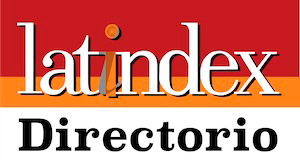The accreditation of engineering programs at professional level in Mexico in front of the health emergency
Keywords:
Accreditation, engineering programs, professional level, health emergencyAbstract
The health crisis caused by the Coronavirus has led to accelerated changes that have implications that are still difficult to analyze in their entirety. In the field of education, it has been saidthat is an unprecedented crisis. The purpose of this article is to share the experience of the Engineering Teaching Accreditation Council (CACEI) from the perspective of quality assurance in higher education. The starting premise is that the pandemic produced new challenges but also highlighted the need to address existing problems. The complexity and magnitude of this challenge is evident with the existence in Mexico of thirteen higher education subsystems that present quality assurance gaps. To face this challenge, CACEI launched the 2018 Undergraduate Reference Framework, carrying out a complete transformation of its model and its evaluation processes, refocusing the quality assurance processes on a model based on the results of professional training. In this way the indicators related to teachers, supplies and infrastructure made sense based on their contribution to student learning, emphasizing collegiate work as a key element in quality improvement and continuous improvement, among other aspects. When the Mexican government declared a health emergency in March 2020, with measures of social distancing and prioritization of essential economic activities, CACEI responded with a strategy that included several lines of action. In May 2020, the Accreditation Committee approved the new accreditation process in mixed modality, to be carried out predominantly online. There is no doubt that the health emergency led CACEI to accelerate the innovation of its processes in order to take better advantage of the possibilities offered by information and communication technologies. It also showed more clearly the potential of these technologies to allow a more flexible approach, with more direct communication and with greater impact on educational programs.
Downloads
Downloads
Published
Versions
- 2023-04-12 (3)
- 2023-04-12 (2)
- 2023-03-23 (1)



